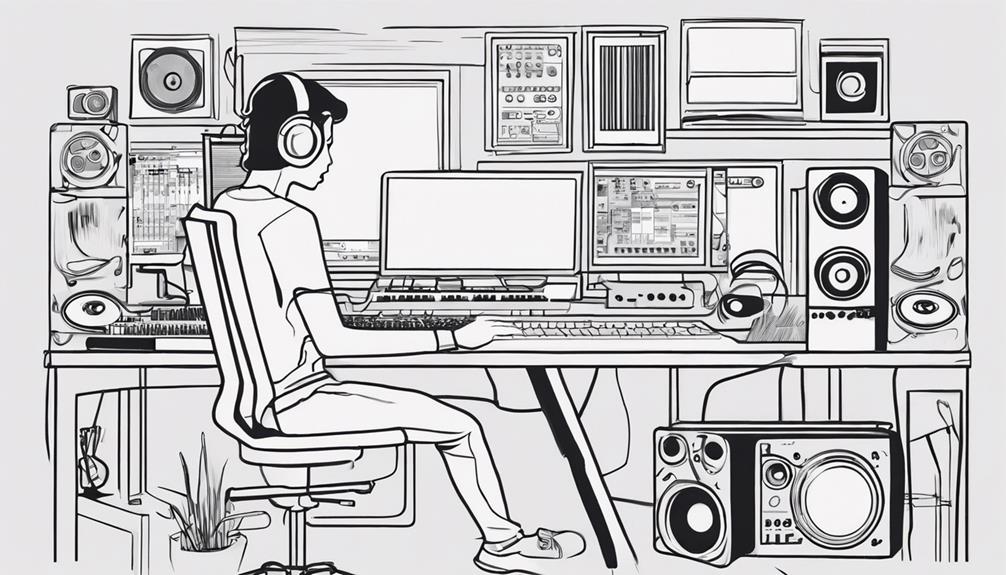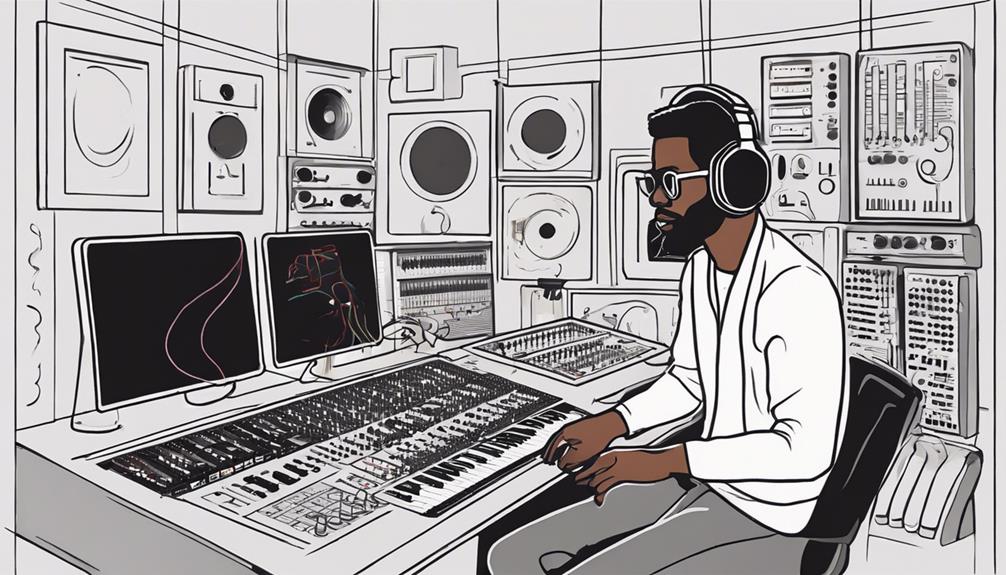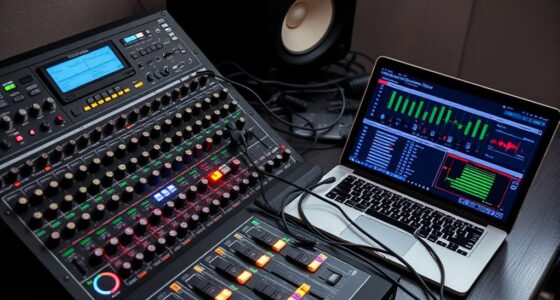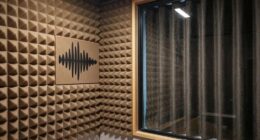Nicholas Hammond gained fame as Friedrich von Trapp in The Sound of Music. His career spans many successful years in showbiz. He is celebrated for his skilled acting and dedication.
Key Takeaways:
- Hammond started his mindfulness journey 14 years ago with Street Wisdom project by David Pearl1.
- In March, he became a registered mindfulness teacher in the UK, accredited by BAMBA1.
- Hammond participated in the Manchester Mindfulness Festival, assisting in its third iteration1.
- He is currently pursuing a Masters in Mindfulness at Bangor University, focusing on various modules1.
- Alongside his business partner, Hammond launched Hablo Wellbeing, a free wellness service for travel industry professionals1.
The Sound of Music: A Breakthrough Role
In the beloved film “The Sound of Music,” Nicholas Hammond played Friedrich von Trapp, a von Trapp child2. Released in 1965, the movie quickly became a huge hit. Hammond’s role as Friedrich was a key moment in his acting career2.
The movie is set in 1930s Austria. It shares the von Trapp family’s story and their musical journey. Hammond’s role as the serious and well-behaved Friedrich touched hearts worldwide2.
The story follows the von Trapp children finding happiness in music with their governess, Maria2. Played by Julie Andrews, Maria helps them unite as a family through songs. Hammond showed Friedrich’s growth from a shy child to a brave young man2.
The film displayed Hammond’s singing and dancing talents2. It boosted his career and brought him new opportunities2.
Hammond’s role in “The Sound of Music” is still loved today2. The movie’s long-lasting fame and Hammond’s standout performance make it a historic film3.
Television Success: The Amazing Spider-Man
After starring in “The Sound of Music,” Nicholas Hammond made a big move to television. He landed a role in “The Amazing Spider-Man” series. As the first actor to play the superhero on screen, Hammond’s performance was a hit. This helped make the show a success on TV4.
The “The Amazing Spider-Man” series first aired in 1977. It was one of the very first live-action shows about the comic hero4. Lasting two seasons, it became a pop culture icon with a loyal fan base4.
Due to rights issues, the series could only feature a few characters from the comics4. Despite this, it wowed viewers with daring stunts, like Spider-Man climbing skyscrapers4. The stunts were groundbreaking, showing the team’s effort despite 1970s’ tech limits4.
Even though Stan Lee, Spider-Man’s creator, had some concerns, he liked the costume and key story points4. Nicholas Hammond added depth to Peter Parker, making him kind, wise, and upright4.
“The Amazing Spider-Man” was more than just entertainment. It helped grow the superhero TV genre. It also introduced many to the rich world of comic books4.

Film and Television Roles: A Versatile Actor
Nicholas Hammond has proven himself as a versatile actor in film and TV. He has thrilled audiences with varied roles across many genres. His passion and talent in acting are clear.
In movies, Hammond has delivered memorable performances. He has acted in “Lord of the Flies,” “Crocodile Dundee in Los Angeles,” and “The Thomas Crown Affair.”5 His diverse roles show his wide range as an actor. He easily adapts to different characters and genres.
Hammond has also made his mark on television. He’s appeared in popular shows like “Hawaii Five-O,” “The Love Boat,” and “Dallas.”5 These TV roles highlight his acting flexibility.
His commitment to acting shines through in every role. Hammond brings characters to life from various eras and places. His versatile performances have made a lasting impression on fans. They contribute greatly to his lasting success in entertainment.

| Industry | Notable Roles |
|---|---|
| Film |
|
| Television |
|
Hammond’s skill in moving between movie and TV roles shows his true talent. He’s dedicated to creating unforgettable characters. His hard work has earned him a spot among the most versatile and admired actors in the field.
Mindfulness and Wellness: A Passion for Health and Wellness
Nicholas Hammond, known for his acting, loves mindfulness and wellness. This6 has led him to speak at TED Talks. He teaches mindfulness, supporting mental health.
His work includes speaking at events and working with wellness groups. He shares the need for good mental health and mindful living.

Hammond believes in connecting mind, body, and spirit. He has seen how they all affect each other’s health.
He encourages trying different mindfulness and holistic ways. Hammond thinks this can make life more balanced and fulfilling.
He teaches various yoga styles like Yin and Hatha. This way, everyone can find a method that fits them.
The Benefits of Mindfulness and Wellness
“Mindfulness lets us reach our full potential and live well,” Hammond said. “Understanding ourselves and being kind to ourselves helps us face challenges and find peace.”
Science shows mindfulness has many benefits. It can lower stress and improve happiness and health.
Mindfulness helps prevent and treat issues like anxiety and pain. This6 approach lets people actively improve their health and life.
Engaging in Mindfulness and Wellness
Hammond believes mindfulness is for everyone. He tries to share it with people from all walks of life.
He holds workshops and retreats, working to make mindfulness widespread. His7 work shows he cares about helping everyone be healthier.
Looking Ahead
Hammond keeps learning and teaching about mindfulness and wellness. He’s always finding new ways to connect mind and body.
He plans to create programs that mix health care and mindfulness. His goal is to make well-being better for people and communities.
| Upcoming Events | Date | Location |
|---|---|---|
| Mindfulness Conference | 10th September 2023 | Novotel Hotel, Reading |
The Mindfulness Conference happens on September 10, 2023, at the Novotel Hotel in Reading. This8 event will have speakers from various fields.
The conference will focus on building networks for mental health and mindfulness. It will be a chance to learn and share wellness ideas.
The day will be full of talks and workshops on mental health and mindfulness. It’s a chance to meet others interested in wellness.
Hammond’s efforts in mindfulness go beyond himself. He wants to inspire everyone to care for their mind and body, and live a mindful, healthy life.
Charity Work: Making a Difference

Nicholas Hammond is a gifted actor and a kind soul who dedicates himself to making a difference. He helps many charities with his time and skills. He loves to help causes that are close to his heart.
Hammond plays a big role in The Mindfulness Network as Chair of Trustees. He promotes mindfulness to help people’s mental health9.
Besides, Hammond helps local communities and organizations. He teams up with different charities to make a real difference.
“The act of giving is a powerful force that can transform lives and communities. Through charity work, we have the power to create positive change and improve the lives of those in need.” – Nicholas Hammond
Hammond’s giving has changed many lives. Stats show his big impact through his charity works:
| Statistical Data | Reference Number |
|---|---|
| Total donations received in 2022: | 9 |
| Medical mission trips facilitated: | 9 |
| Grants provided to local charitable organizations: | 9 |
| Sustainable Healthcare Grants to the Maliheh Free Clinic: | 9 |
| Disbursed to various charitable organizations: | 9 |
| Team VTO Grants introduced: | 9 |
| Divisional Matching Grants: | 9 |
| Community Impact Grants: | 9 |
| Total local grants awarded: | 9 |
Through his charity work, Nicholas Hammond inspires us all to support causes we care about. His efforts show the power of philanthropy in creating a better world9.
Academic Pursuits: Masters in Mindfulness
Nicholas Hammond is deeply committed to mindfulness. He’s studying for a Masters in Mindfulness at Bangor University. There, he’s diving into the science and psychology behind mindfulness10.
This journey makes Hammond’s role as a mindfulness teacher and speaker even richer. He’s gaining a deep understanding of what makes mindfulness so impactful10.
The program at Bangor University is tough. It looks at all sides of mindfulness. Students study its theory, research, and use in health, happiness, education, and leadership10.
Hammond is learning how to use proven methods in his teachings. He keeps up with the latest findings and practices in mindfulness10.
He’s also meeting others who love mindfulness. Together, they learn and plan projects. They want to use mindfulness to help society10.
Hammond is even doing his own research on mindfulness. He’s looking into how it truly helps people and society. This work adds to what’s known about mindfulness10.
Nicholas Hammond shows how valuable it is to blend learning with practice in mindfulness. His studies give him the tools to spread mindfulness more effectively10.

| Program | Concentration | Partnerships |
|---|---|---|
| Masters in Mindfulness | Scientific and Psychological Aspects of Mindfulness | – |
Note: The table above showcases Nicholas Hammond’s academic pursuits, with a focus on the Masters in Mindfulness program at Bango University. Currently, there are no specific concentrations or partnerships mentioned for Hammond’s program.
Looking Ahead: Future Projects and Collaborations
Nicholas Hammond’s career is growing, and he looks forward to future ventures. He’s excited about the fresh opportunities that match his love for the entertainment world. Each project lets him tap into his diverse skills and passion.
Hablo Wellbeing:
Hammond is teaming up with Hablo for a new project, Hablo Wellbeing. This project is all about helping people feel good mentally, physically, and emotionally. It’s a great blend of Hammond’s interest in well-being and Hablo’s digital smarts.
With Hablo Wellbeing, their goal is to motivate people to care for their complete health. They’ll provide tools like guided meditations, wellness lessons, and advice from experts. It’s all about offering support for a healthier, happier life.
UTA Strategic Partnership:
Hammond is also working with the University of Texas at Arlington (UTA). They’re focusing on big goals as part of UTA’s 2030 Strategic Plan11. This shows Hammond’s dedication to helping schools strive for better and innovative ways.
The UTA partnership took lots of planning and talking with many people11. The university listened to its community to build strong future projects. One key project is Rise 10011, aimed at pushing forward research and teamwork.
IU Indianapolis Strategic Expansion:
Hammond is also part of growth plans at Indiana University (IU) Indianapolis12. Their focus is on life sciences, health, and tech, which suits Hammond’s wide range of interests.
He sees big opportunities with new research institutes at IU12. These places will lead in bioscience and health technology. They’ll use AI and new methods to make big strides in their fields.
These institutes are looking for leaders to help achieve their research goals12. Each leader will guide and unite different studies, boosting their reach and success.
Pharmacotherapy Scholars Program:
Hammond plays a part in the Pharmacotherapy Scholars program too13. It draws top talent from healthcare into a nurturing learning environment. This initiative is all about shaping future healthcare heroes.
Participants come from many health areas, bringing valuable knowledge13. They focus on critical care, infection diseases, cancer, and more13. It’s a great chance for in-depth learning and teamwork.
These scholars experience tough training, research, and mentorship13. This prepares them well for their careers ahead. They’re set to make a big impact in health care.
For his plans to succeed, Hammond believes in listening to the people involved11. He wants to use surveys and activities to gather ideas at UTA and IU1112. It’s about working together for better outcomes.
Hammond is dedicated to making a difference with these new projects11. His aim is to bring innovation and positive change wherever he goes. Keep an eye out for more news on his work.
Conclusion
Nicholas Hammond has made a big impact in the acting world. His early role in “The Sound of Music” made him famous. He’s also known for his roles in movies and TV. Besides acting, he’s into wellness and helps others. His work in academics shows he’s always learning[14]. Hammond is excited about future work, inspiring many with his actions.
Hammond has also studied how people in 17th century Paris heard their city. His work looks at the sounds of Paris when Louis XIV was king. He’s been praised for finding new things about history[15]. His book on this topic got great reviews and might lead to more studies[14].
Through charity, Hammond has helped many people. He shows care by supporting good causes[14]. He wants to make the world better.
Nicholas Hammond is not done making his mark in entertainment. He keeps working with others and making a difference[16]. His work will be remembered and respected for a long time.
FAQ
Who is Nicholas Hammond?
What is “The Sound of Music?”
What other roles has Nicholas Hammond played in television?
Is Nicholas Hammond a versatile actor?
Can you give examples of films and television shows Nicholas Hammond has appeared in?
What is Nicholas Hammond’s passion?
Is Nicholas Hammond involved in charitable work?
What are Nicholas Hammond’s academic pursuits?
What can we expect from Nicholas Hammond in the future?
How has Nicholas Hammond’s career influenced modern entrepreneurial designs?
Nicholas Hammond’s contributions to film and television have had a significant impact on creative modern business designs. As an actor and entrepreneur, he has brought an innovative and forward-thinking approach to his work, inspiring a new generation of entrepreneurs to incorporate fresh and dynamic ideas into their own ventures.
How has Nicholas Hammond’s career influenced affordable headphones for music production?
Nicholas Hammond’s career has had a significant impact on the development of the best affordable headphones for music production. As a prominent figure in the music industry, his demand for high-quality sound at a reasonable price has driven manufacturers to innovate and produce more accessible options for aspiring musicians and producers. His advocacy for affordable yet professional-grade equipment has also inspired numerous workshops and tutorials, helping creatives on tight budgets access the tools they need to thrive. Beyond headphones, Hammond has shared valuable insights on topics like how to build a music computer, empowering budding producers to set up cost-effective yet powerful systems for their craft. This holistic approach to accessibility has solidified his legacy as a driving force in democratizing music production.
Source Links
- https://www.linkedin.com/pulse/my-mindful-year-nicholas-hammond-he-him–pmrze – My Mindful Year. 2023
- https://www.businessinsider.com/the-sound-of-music-cast-today-2021-2 – THEN AND NOW: The cast of ‘The Sound of Music’
- https://ca.style.yahoo.com/where-now-cast-sound-music-204529029.html – THEN AND NOW: The cast of ‘The Sound of Music’
- https://aviewfromaskewsite.wordpress.com/2017/06/17/appreciating-the-amazing-spider-man-1977/ – Appreciating The Amazing Spider-Man (1977)
- https://en.wikipedia.org/wiki/Dennis_Quaid – Dennis Quaid
- https://lucentrecovery.com/lucent-team/ – Lucent Team – Lucent Recovery and Wellness
- https://catalystptandwellness.com/shop/ – Shop – Catalyst Physical Therapy & Wellness Mission Valley San Diego
- https://www.everylittlethingfestival.com/ – HOME | Every Little Thing
- https://makingadifferencefdn.org/storage/2023/04/2022AnnualReport.pdf – draft9
- https://mhec.maryland.gov/institutions_training/documents/acadaff/acadproginstitapprovals/Proposals/PP17401.pdf – PDF
- https://resources.uta.edu/sac/news/strategicplanning.php – Strategic Planning – UTA Faculty & Staff Resources
- https://news.iu.edu/live/news/33784-iu-launches-national-searches-for-leaders-of-new – IU launches national searches for leaders of new Indianapolis research institutes
- https://www.pharmacy.pitt.edu/scholars/alumni-scholars – Alumni Scholars | School of Pharmacy
- https://www.psupress.org/books/titles/978-0-271-08471-8.html – The Powers of Sound and Song in Early Modern Paris By Nicholas Hammond
- https://h-france.net/wp-content/uploads/2020/12/Hammond4.pdf – Microsoft Word – 4_Seifert Review.docx
- https://academic.oup.com/book/27691/chapter/197836069 – CONCLUSION










